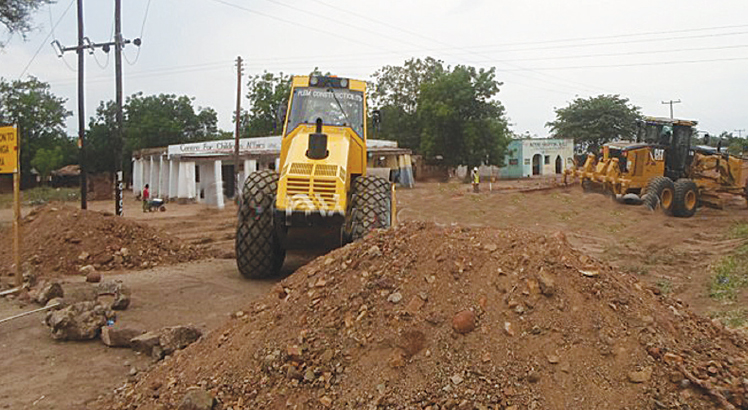Committee, experts decry loan funds mismanagement
The Public Accounts Committee (PAC) of Parliament has expressed concern over incidents of loan misuse and says it will soon engage the Secretary to the President and Cabinet on how government will deal with the malpractice.
The concern follows reports that the Ministry of Education is struggling to complete the construction of three teachers training colleges (TTCs), whose construction started in 2018, yet loans totalling $30 million (K30 billion) were obtained for the same project over a six-year period.

Another case involves the construction of the 52-kilometre (km) Jenda-Edingeni road project which only started in 2014, yet the government signed a loan in October 2010 amounting to $9 million and another loan a few years later totalling $326 million for the same project.
PAC chairperson Mark Botomani said the committee feels betrayed with delayed supply of information for them to act on such cases.
He said: “Yes, we are equally to blame because we approve the loans as parliamentarians and if the same is not put to good use, we must be worried.
“I know in 2014-2019 PAC cohort, Juliana Lunguzi asked the then Minister of Finance to provide a profile of all loans obtained since 1994 and what they were used for. The ministry provided some information but we need to follow up.”
Botomani said PAC needs to assess the impact of the loans the government gets through Parliament approval.
The three TTCs in the spotlight are being constructed in Rumphi, Mchinji and Chikwawa. The project implementation period is January 2018 to March 202, according to the Public Sector Investment Plan (PSIP 2022), which rates current progress at 85 percent.
Records sourced from the Ministry of Finance show that between 2009 and 2012 obtained loans amounting to $30 million (K30 billion) for this project.
This year, the project will require an extra K7.4 billion to complete construction works despite the government pumping in an extra $9 million (K9 billion).
Ministry of Education Chikondi Chimala dispelled any abuse of the loan provision, saying the funds used were made available from 2014 with payment for designing works.
He said design and supervision cost $2 million, civil works cost government $35 million while procurement of furniture, information and communication technology, woodwork, metalwork and education equipment cost $2 million.
Chimala said: “Regarding the donor funds, government did not handle any funds under this project since the donors have been paying directly to the consultant, contractors and suppliers. The Ministry of Education and Treasury have only been facilitating procurement and processing of payments.”
As for the 52-km Jenda-Edingeni road project, Minister of Transport Kelvin Sato said the 2010 loan only became effective in 2012 and procurement processes began in 2013.
He said: “After completion of the procurement processes, the construction works commenced in 2014 and the works were completed in 2016.”
However, the latest PSIP and Roads Authority’s website indicates that only about 15km of the 52km stretch has been constructed.
Construction and economic experts have since said poor loan management is becoming a burden to the taxpayers, who have to pay more for projects due to cost escalation.
Construction Sector Transparency Initiative (CoST) country manager Lyford Gideon said the two cases are but a typical example of government entities mismanaging loan provisions.
He said: “Looking at these loans, we most likely must have started paying the loans even before the delivery of the infrastructure or indeed before we started enjoying the benefits of the loans.
“I fear the whole thing smacks of mismanagement where government entities poorly plan and perceive risks to protect and safeguard value for money of the taxpayer”.
Economist Milward Tobias said this confirms the problem of poor project management in government which forces the nation to spend more than necessary due to cost overruns.
“This is a result of over-commissioning of projects when funds are yet to be secured to satisfy unrealistic political podium promises,” he said.
The Ministry of Finance, which usually contracts these loans on behalf of government, did not respond to our questionnaire sent to the spokesperson Taurai Banda on July 28 2022.





